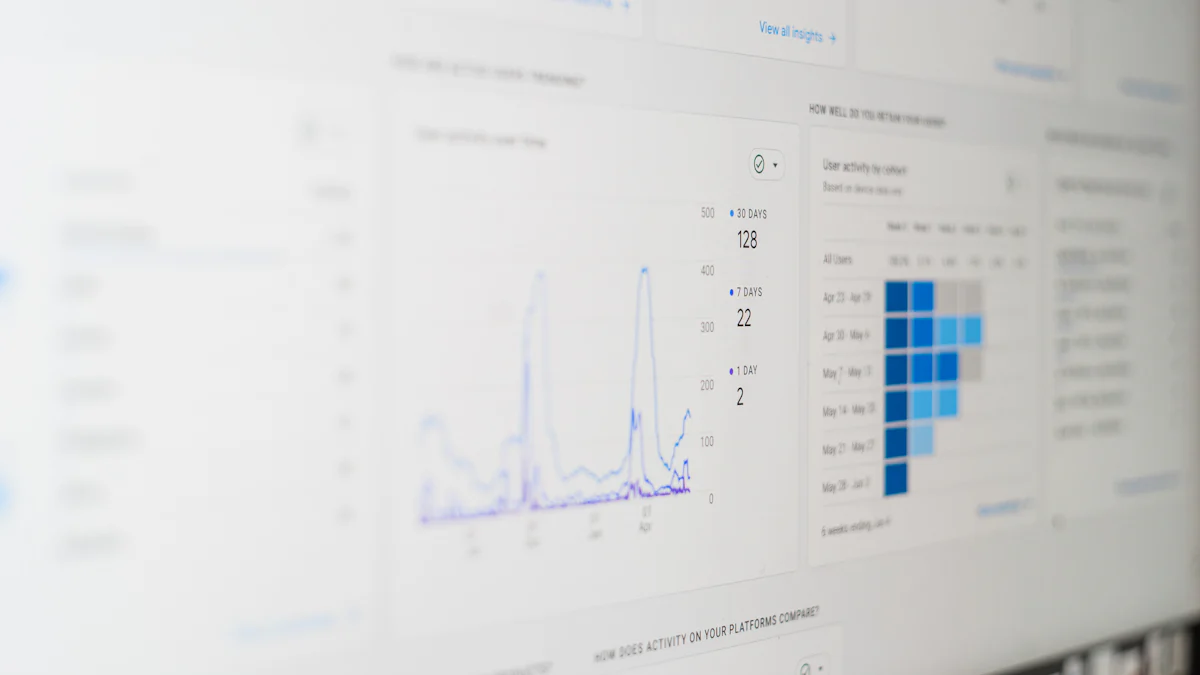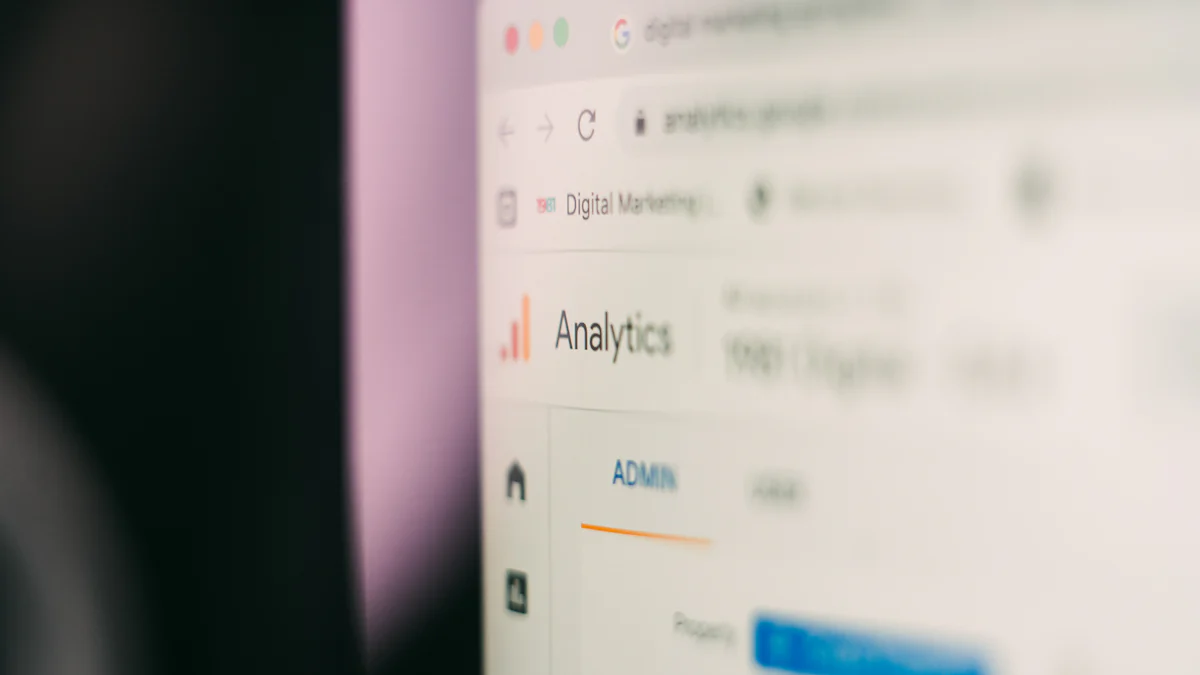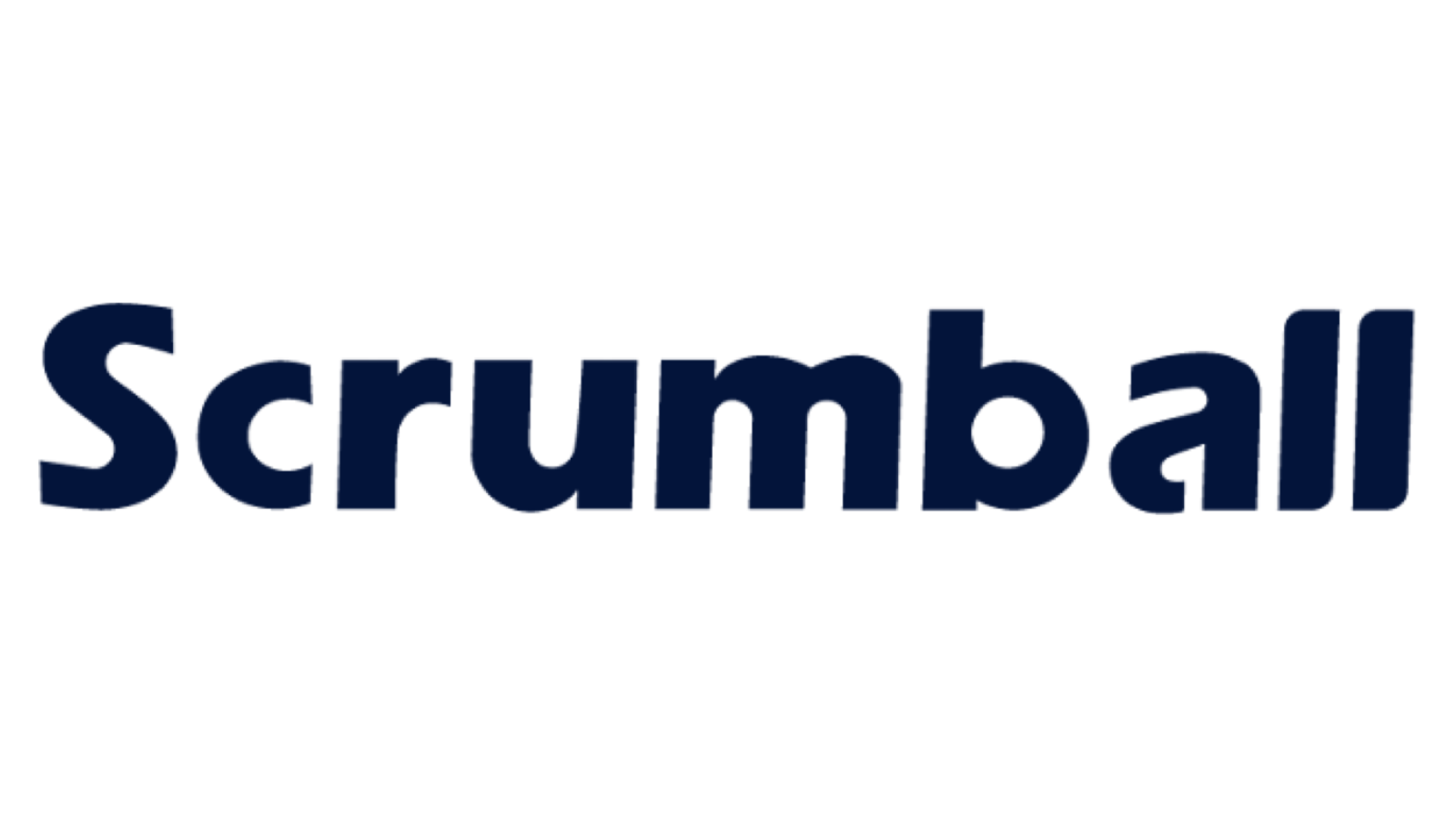Top 10 Marketing Automation Software Tools for 2024

In 2024, marketing automation tools are no longer optional—they’re essential. With over 398 companies offering marketing automation softwares, businesses are embracing these tools to stay competitive. Did you know that 3 in 4 businesses already use automation? From scheduling emails to managing social media, automation tools save time and boost efficiency. They also drive growth, with new users reporting a 20% productivity increase and a 56% revenue boost. The best marketing automation software doesn’t just streamline tasks; it transforms how you connect with your audience. Personalized emails, data-driven insights, and seamless workflows make all the difference.
Understanding Marketing Automation Software
What Is Marketing Automation Software?
Marketing automation software is your go-to solution for streamlining repetitive marketing tasks. It’s like having a virtual assistant that handles everything from sending automated emails to managing social media automation. These platforms help you create, execute, and track campaigns across multiple channels, ensuring your marketing efforts are both efficient and effective.
At its core, marketing automation software combines tools like email marketing automation, lead generation automation, and analytics into one integrated marketing automation platform. Here’s a quick look at its core functionalities:
| Functionality | Description | |-----------------------------|--------------------------------------------------| | Lead Management | Automates the process of capturing and nurturing leads. | | Email Marketing | Facilitates the creation and distribution of targeted email campaigns. | | Analytics and Reporting | Provides insights into campaign performance and customer behavior. |
By automating these tasks, you can focus on crafting better strategies and building stronger connections with your audience.
Benefits of Marketing Automation Tools
Time-Saving and Efficiency
Imagine freeing up hours spent on manual tasks. Marketing automation tools handle repetitive jobs like scheduling emails or posting on social media. This efficiency lets you focus on creative and strategic work instead of getting bogged down by routine tasks.
Improved Lead Management
Lead generation automation ensures no potential customer slips through the cracks. These tools capture, nurture, and qualify leads automatically, helping you prioritize the most promising ones. You’ll never miss a follow-up again.
Enhanced Personalization
Personalization is key to effective customer journeys. Marketing automation platforms let you send tailored messages based on user behavior, preferences, and demographics. This makes your audience feel valued and increases engagement.
Data-Driven Decision Making
With analytics baked into the best marketing automation software, you’ll gain actionable insights. These tools track campaign performance, customer behavior, and ROI, helping you make smarter decisions backed by data.
Why Marketing Automation Is Crucial in 2024
In 2024, marketing automation isn’t just a luxury—it’s a necessity. Businesses face challenges like messy data, manual processes, and reliance on IT for basic tasks. Without automation, proving ROI or managing multiple systems becomes a headache.
Adopting marketing automation platforms solves these issues. Companies using these tools report a 451% increase in qualified leads and a 12% reduction in marketing costs. Plus, 76% of businesses see positive ROI within the first year. Trends like full-funnel omnichannel marketing and generative AI in content creation are reshaping the landscape. These innovations help you deliver effective customer journeys and stay ahead of the competition.
Pro Tip: Investing in all-in-one marketing automation platforms can simplify your workflow and maximize your results.
Top 10 Best Marketing Automation Tools for 2024

HubSpot Marketing Hub
Key Features
HubSpot Marketing Hub stands out with its user-friendly interface and comprehensive feature set. It combines email marketing, content management, and marketing automation into one seamless platform. The built-in CMS makes managing your content and campaigns a breeze. You’ll also love the intuitive visual workflow editor for creating complex automation campaigns. Recent updates include AI-powered tools for crafting emails and generating detailed reports. Plus, it’s scalable, so it grows with your business.
Best Use Cases
This platform is perfect for small to mid-sized businesses, especially in industries like SaaS, e-commerce, and professional services. Whether you’re running a B2B or B2C company, HubSpot helps streamline your marketing efforts. It’s ideal for businesses looking for an all-in-one marketing automation solution that simplifies workflows.
Pros and Cons
Pros:
- Easy to use, even for beginners.
- Offers advanced marketing automation workflows.
- Excellent customer support and training resources.
Cons:
- Pricing can be steep for smaller businesses.
- Limited customization options for advanced users.
Pricing
HubSpot offers a free plan with basic features. Paid plans start at $50/month, scaling up based on your needs.
Marketo Engage (Adobe)
Key Features
Marketo Engage excels in advanced lead nurturing and account-based marketing (ABM). It tracks user behavior to deliver personalized experiences. You’ll appreciate its deep analytics insights and revenue attribution modeling, which help you understand what’s driving results. Integration with Adobe Dynamic Chat enhances real-time engagement, creating smoother customer journeys.
Best Use Cases
Marketo is a go-to for enterprises and businesses with complex marketing needs. It’s especially effective for companies focusing on ABM or those requiring detailed analytics to refine their strategies.
Pros and Cons
Pros:
- Exceptional behavior tracking and personalization.
- Robust ABM tools for targeting key accounts.
- Seamless integration with other Adobe products.
Cons:
- Steep learning curve for new users.
- Higher cost compared to other platforms.
Pricing
Pricing starts at $1,250/month, making it a better fit for larger businesses with bigger budgets.
ActiveCampaign
Key Features
ActiveCampaign shines in email marketing automation and customer segmentation. It uses drip campaigns to keep your audience engaged over time. You can analyze customer behavior to predict future actions and improve your strategies. Its tailored messaging ensures every email feels personal and relevant.
Best Use Cases
This platform works well for businesses of all sizes. It’s particularly effective for companies that rely on personalized communication and want to build stronger customer relationships.
Pros and Cons
Pros:
- Affordable pricing for small businesses.
- Powerful segmentation and automation tools.
- Excellent customer support.
Cons:
- Limited design options for emails.
- Reporting features could be more robust.
Pricing
Plans start at $29/month, making it one of the most budget-friendly options for marketing automation.
Salesforce Marketing Cloud (Pardot)
Key Features
Salesforce Marketing Cloud (Pardot) is packed with features that make it a favorite for enterprise-level businesses. It offers a 360-degree view of customer data, helping you understand your audience better. Its advanced automation tools streamline workflows, while personalization at scale ensures every interaction feels tailored. You can manage multi-channel campaigns across emails, social media, SMS, and mobile apps from one platform. The platform also excels in segmentation, targeting, and data analytics, giving you the insights needed to refine your strategies.
Best Use Cases
This marketing automation software is ideal for large businesses and enterprises. If you’re running complex campaigns or need to manage multiple channels, Pardot simplifies the process. It’s especially useful for B2B companies focused on lead nurturing and account-based marketing.
Pros and Cons
Pros:
- Centralized multi-channel campaign management.
- Exceptional analytics and reporting tools.
- Seamless integration with other Salesforce products.
Cons:
- Steep learning curve for beginners.
- High cost, making it less accessible for small businesses.
Pricing
Pricing starts at $1,250/month, which caters to enterprise-level needs. While it’s on the pricier side, the features justify the investment for larger organizations.
Mailchimp
Key Features
Mailchimp is a go-to for small businesses, offering tools like A/B testing, customer journey builders, and behavioral targeting. Its integrations with Shopify, WooCommerce, and Canva make it versatile. You can create stunning emails using its drag-and-drop builder and design landing pages effortlessly. Audience management features help you segment and target your customers effectively.
Best Use Cases
Mailchimp works best for small to medium-sized businesses. If you’re just starting with marketing automation tools, this platform is user-friendly and affordable. It’s perfect for email marketing automation and managing smaller campaigns.
Pros and Cons
Pros:
- Easy to use, even for beginners.
- Affordable pricing plans.
- Excellent integrations with e-commerce platforms.
Cons:
- Limited advanced features for larger businesses.
- Reporting tools could be more detailed.
Pricing
Mailchimp offers a free plan for basic needs. Paid plans start at $10/month, with options like Essentials, Standard, and Premium based on your contact list size.
Klaviyo
Key Features
Klaviyo is a powerhouse for e-commerce businesses. It integrates seamlessly with platforms like Shopify, WooCommerce, and BigCommerce. Its advanced marketing automation features use real-time data and AI-driven insights to personalize customer experiences. Robust segmentation tools allow you to target specific audiences, making your campaigns more effective.
Best Use Cases
If you run an online store, Klaviyo is one of the best-in-class tools for driving conversions. It’s perfect for businesses that rely on data-driven marketing and want to create highly personalized emails and campaigns.
Pros and Cons
Pros:
- Powerful integrations with e-commerce platforms.
- Advanced segmentation and personalization capabilities.
- Real-time data insights for better decision-making.
Cons:
- Pricing increases as your contact list grows.
- Limited features for non-e-commerce businesses.
Pricing
Klaviyo offers a free plan for up to 250 contacts. Paid plans start at $20/month, scaling based on the number of contacts and emails sent.
Zoho Marketing Automation
Key Features
Zoho Marketing Automation offers a robust set of features tailored for businesses of all sizes. Here’s what makes it stand out:
| Feature | Description | |------------------------|--------------------------------------------------------------------------------------------------| | Cost-Effectiveness | Competitive pricing plans cater to businesses of all sizes, from startups to enterprises. | | Ease of Use | An intuitive drag-and-drop workflow builder simplifies the process of creating automation. | | Comprehensive Ecosystem| Integrates with applications like Zoho CRM, Zoho Books, and Zoho Desk. | | Scalability | The platform’s robust features grow alongside your business needs. | | Dedicated Support | Extensive documentation, tutorials, and customer support to help users maximize the platform. |
Best Use Cases
Zoho Marketing Automation is perfect for startups and growing businesses. If you’re looking for an all-in-one marketing automation platform that integrates seamlessly with other Zoho products, this tool is a great choice. It’s ideal for managing email marketing automation, lead nurturing, and customer segmentation.
Pros and Cons
Pros:
- Affordable pricing for small businesses.
- Easy integration with Zoho’s ecosystem.
- Scalable features that adapt to your growth.
Cons:
- Limited third-party integrations outside the Zoho suite.
- Advanced features may require a learning curve.
Pricing
Zoho offers flexible pricing plans starting at $10/month, making it accessible for small businesses and startups.
Brevo (formerly Sendinblue)
Key Features
Brevo, previously known as Sendinblue, has evolved into a comprehensive marketing automation software. It’s packed with features like trigger-based campaigns, advanced segmentation, and dynamic personalization. You can also integrate it with platforms like Shopify and WooCommerce for seamless e-commerce operations.
“Our product simply outgrew our name. Sendinblue started as a newsletter service. But today, only 31% of our clients are focused solely on sending newsletters.”
Best Use Cases
Brevo is ideal for small businesses and e-commerce stores. If you’re running email marketing automation campaigns or need a cost-effective solution for targeted marketing, this tool delivers.
Pros and Cons
Pros:
- Budget-friendly pricing, especially for small businesses.
- Free plan with essential features like email templates and automation workflows.
- Excellent for advanced segmentation and personalization.
Cons:
- Limited features for larger enterprises.
- Reporting tools could be more detailed.
Pricing
Brevo offers a free plan for basic needs. Paid plans start at $25/month, making it a value-for-money option for businesses with smaller email volumes.
Drip
Key Features
Drip specializes in helping e-commerce businesses create personalized customer experiences. It offers dynamic segmentation, drip campaigns, and advanced email workflows. You can also use its form builder to capture leads and improve customer engagement.
Best Use Cases
Drip is perfect for e-commerce brands that want to enhance customer journeys. Whether you’re setting up welcome series or running targeted campaigns, this tool helps you connect with your audience effectively.
Pros and Cons
| Strengths | Weaknesses | |------------------------------------------------|-------------------------------------------------| | Top-notch email workflow builder | Confusing navigation | | Advanced form builder | Basic reporting dashboard | | Unlimited monthly email sends | | | Dynamic list creation | |
Pricing
Drip’s pricing starts at $39/month, which includes unlimited emails and access to all features.
Keap (formerly Infusionsoft)
Key Features
Keap, formerly known as Infusionsoft, is a standout choice for small businesses looking to simplify their sales and marketing processes. It combines powerful tools into one platform, making it an excellent all-in-one marketing automation solution. Here’s what makes Keap unique:
- Integrated sales and marketing automation to streamline your workflows.
- A smart subscription form builder that helps you capture leads effortlessly.
- Simple reporting and analytics tools to track your progress without the hassle.
- Built-in phone line and text messaging features for direct communication with your audience.
With these features, you can manage your campaigns, track leads, and even send follow-up emails—all from one place.
Best Use Cases
Keap works best for small businesses and solopreneurs who want to save time and focus on growing their customer base. If you’re juggling multiple tasks, this platform helps you stay organized. It’s perfect for managing client relationships, automating follow-ups, and sending personalized emails to nurture leads.
Pros and Cons
Pros:
- User-friendly interface designed for small business owners.
- Excellent customer support to guide you through setup and usage.
- Combines CRM, email marketing, and automation in one platform.
Cons:
- Limited advanced features for larger enterprises.
- Pricing may feel steep for startups with tight budgets.
Pricing
Keap offers two main pricing plans:
- Pro Plan: Starts at $159/month and includes features like automation, CRM, and email marketing.
- Max Plan: Starts at $229/month, offering advanced tools like lead scoring and analytics.
While it’s not the cheapest option, the value it provides for small businesses makes it worth considering.
Pro Tip: If you’re new to marketing automation software, Keap’s free trial is a great way to explore its features before committing.
How to Choose the Best Marketing Automation Software

Factors to Consider
Ease of Use
When choosing marketing automation softwares, ease of use should be at the top of your list. A tool with an intuitive interface and a simple dashboard can save you hours of frustration. You don’t want to spend weeks learning how to use a platform. Instead, look for software that lets you dive right in and start automating tasks like lead generation automation or social media automation with minimal effort.
Integration Capabilities
Your marketing automation tools should play well with others. Whether it’s your CRM, e-commerce platform, or analytics software, seamless integration is a must. This ensures all your systems work together, making your campaigns more effective. For example, tools that integrate with Shopify or Salesforce can streamline your customer journeys and improve your workflow.
Pricing and Budget
Budget is always a factor. Look for flexible pricing models that fit your business size and needs. While some tools may seem expensive, consider the ROI they deliver. Features like lead management, analytics, and automation workflows can justify the cost by boosting efficiency and revenue.
Scalability
Your business will grow, and your software should grow with it. Choose a platform that can handle increased data, users, and campaigns without slowing down. Scalability ensures you won’t need to switch tools as your needs evolve.
Matching Marketing Automation Tools to Business Needs
Small Businesses
If you’re running a small business, affordability and simplicity are key. Tools like Mailchimp or Brevo offer budget-friendly plans and user-friendly interfaces. These platforms help you manage email campaigns and basic automation without overwhelming you.
Medium-Sized Businesses
For medium-sized businesses, you’ll need more advanced features like segmentation and analytics. Platforms like ActiveCampaign or Zoho Marketing Automation strike a balance between cost and functionality. They’re perfect for businesses looking to scale their marketing efforts.
Enterprises
Enterprises require robust solutions with advanced capabilities. Tools like Salesforce Marketing Cloud or Marketo Engage provide powerful features like account-based marketing and multi-channel campaign management. These platforms are ideal for handling complex workflows and large-scale operations.
Tips for Evaluating Marketing Automation Softwares
Free Trials and Demos
Always test before you commit. Most platforms offer free trials or demos. Use this opportunity to explore features, test integrations, and see if the software meets your needs.
Customer Support and Training
Good customer support can make or break your experience. Look for platforms that offer training resources, tutorials, and responsive support teams. This ensures you’ll get help when you need it.
User Reviews and Case Studies
Check what others are saying. User reviews and case studies provide real-world insights into how a tool performs. Look for feedback on ease of use, ROI, and customer support to make an informed decision.
Pro Tip: Track metrics like conversion rates and customer acquisition costs to evaluate the ROI of your chosen software. Lower costs and higher-quality leads mean you’ve made the right choice.
Marketing automation tools are game-changers for businesses in 2024. They save time, improve lead management, and help you deliver personalized experiences that resonate with your audience. The best marketing automation software doesn’t just simplify tasks—it empowers you to make smarter decisions with data-driven insights.
Each tool on this list has its strengths. Some excel in CRM integration, while others shine in analytics, social media management, or campaign optimization. Whether you’re a small business or a large enterprise, there’s a tool tailored to your needs.
Take the time to explore these platforms. Test their features, evaluate their fit for your goals, and choose the one that helps you grow. The right tool can transform your marketing strategy and set you up for success.
FAQ
What is marketing automation software used for?
Marketing automation software helps you streamline repetitive tasks like email campaigns, social media posts, and lead nurturing. It improves efficiency, saves time, and ensures consistent communication with your audience. You can focus on strategy while the software handles the routine work.
Can small businesses afford marketing automation tools?
Absolutely! Many tools, like Mailchimp and Brevo, offer free or budget-friendly plans. These options provide essential features like email automation and lead management, making them perfect for small businesses. You don’t need a big budget to get started.
How do I know which tool is right for my business?
Start by identifying your needs. Do you need email automation, CRM integration, or analytics? Test free trials or demos to see which tool fits your workflow. Look for ease of use, scalability, and features that align with your goals.
Do I need technical skills to use marketing automation software?
Not at all! Most platforms are designed with user-friendly interfaces and drag-and-drop builders. Tools like HubSpot and ActiveCampaign make it easy for beginners to create campaigns without coding. You’ll find plenty of tutorials and support to guide you.
How does marketing automation improve ROI?
Automation boosts ROI by saving time, reducing manual errors, and improving lead management. It helps you target the right audience with personalized campaigns, increasing engagement and conversions. With data-driven insights, you can refine strategies and maximize results.
Pro Tip: Start small with basic features and scale up as you grow. This way, you’ll get the most value from your investment.
See Also
15 Essential Influencer Marketing Platforms for 2024
10 Budget-Friendly Influencer Marketing Platforms in 2024
20 Key Influencer Marketing Statistics Every Marketer Should Know
Influencer Marketing Trends You Should Monitor in 2024
10 Highly Effective Ambassador Marketing Campaigns to Inspire
